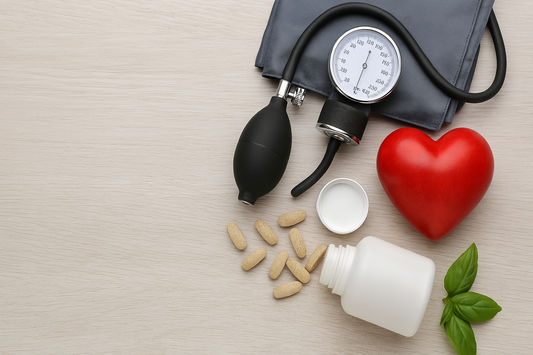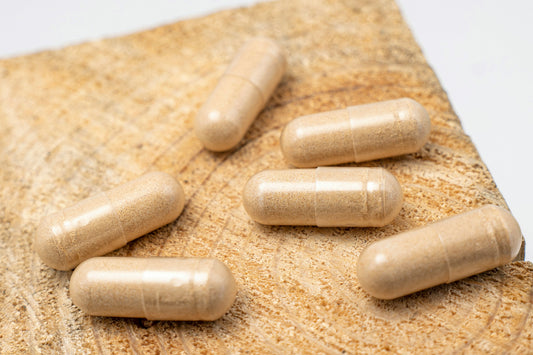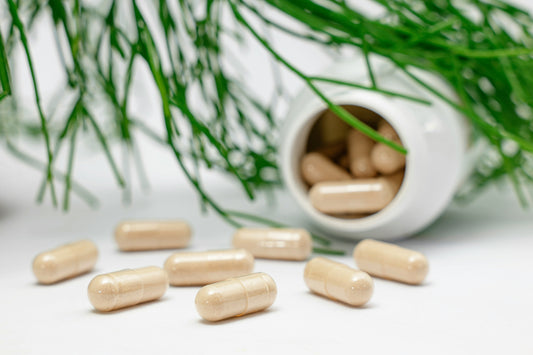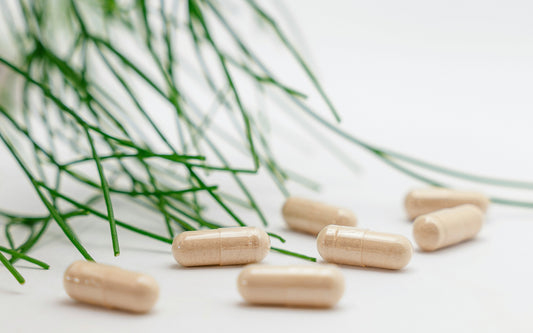5 Ways to Naturally Lower Blood Pressure
Discover 5 effective and natural methods to lower your blood pressure and improve your overall health.
To naturally lower blood pressure, there are several lifestyle changes that can be made. These changes include losing weight, exercising regularly, eating a healthy diet, reducing salt intake, limiting alcohol consumption, quitting smoking, getting enough sleep, reducing stress, monitoring blood pressure at home, and seeking support from friends and family. These changes can help lower blood pressure and reduce the risk of heart disease.
Other tips include increasing physical activity, reducing sodium intake, maintaining a healthy weight, limiting alcohol consumption, and quitting smoking. It is also important to monitor blood pressure regularly and seek support from family and friends. Some additional tips include reducing stress, eating dark chocolate in moderation, and practicing meditation and deep breathing. Seeking support from friends and family can also be helpful in managing high blood pressure. However, it is important to note that in some cases, medication may be necessary to control high blood pressure, especially for those with stage 2 hypertension. Overall, these lifestyle changes can have a significant impact on lowering blood pressure naturally and improving overall health.
Key Takeaways:
- Losing weight, exercising regularly, and eating a healthy diet can help lower blood pressure.
- Reducing salt intake, limiting alcohol consumption, and quitting smoking are important lifestyle changes to lower blood pressure.
- Monitoring blood pressure at home and seeking support from friends and family can aid in managing high blood pressure.
- Increasing physical activity, reducing sodium intake, and maintaining a healthy weight are additional tips for lowering blood pressure naturally.
- Practicing stress management techniques, such as meditation and deep breathing, can also contribute to lower blood pressure.
Lifestyle Changes for Lowering Blood Pressure
Adopting certain lifestyle changes can have a significant impact on lowering your blood pressure naturally. By making simple adjustments to your daily routine, you can help manage hypertension and reduce the risk of heart disease. Here are some effective lifestyle changes that can help lower blood pressure:
- Lose Weight: Maintaining a healthy weight is crucial for blood pressure control. Losing even a small amount of weight can make a big difference in reducing high blood pressure.
- Exercise Regularly: Engaging in regular physical activity can help lower blood pressure. Aim for at least 150 minutes of moderate-intensity exercise each week, such as brisk walking, cycling, or swimming.
- Eat a Healthy Diet: Consuming a diet rich in fruits, vegetables, whole grains, lean proteins, and low-fat dairy products can contribute to lower blood pressure. Limiting salt intake and avoiding processed foods high in sodium is also important.
- Reduce Stress: Chronic stress can elevate blood pressure levels. Incorporate stress management techniques into your daily routine, such as deep breathing exercises, meditation, or engaging in hobbies you enjoy.
Remember, these lifestyle changes should be implemented as part of a comprehensive approach to managing hypertension. It is advisable to consult with a healthcare professional or a registered dietitian to develop a personalized plan tailored to your specific needs.

| Lifestyle Changes | Benefits |
|---|---|
| Lose Weight | - Reduces blood pressure - Improves overall health |
| Exercise Regularly | - Lowers blood pressure - Strengthens the heart - Boosts cardiovascular health |
| Eat a Healthy Diet | - Supports heart health - Lowers blood pressure - Reduces risk of chronic diseases |
| Reduce Stress | - Lowers blood pressure - Enhances emotional well-being |
By incorporating these lifestyle changes, you are taking proactive steps toward improving your overall health and reducing your blood pressure. Remember that consistency and long-term commitment to these habits are key to seeing positive results. Stay motivated, stay dedicated, and enjoy the benefits of a healthier lifestyle!
Diet and Blood Pressure
A balanced diet plays a crucial role in managing blood pressure levels and reducing the risk of hypertension. Here are some dietary changes that can help naturally lower blood pressure:
- Reducing Sodium Intake: Consuming excessive amounts of sodium can contribute to high blood pressure. It is recommended to limit sodium intake by avoiding processed and packaged foods, opting for fresh ingredients, and using herbs and spices to add flavor instead of salt.
- Maintaining a Healthy Weight: Being overweight or obese increases the risk of high blood pressure. By adopting a healthy diet that focuses on whole, nutrient-dense foods and portion control, individuals can achieve and maintain a healthy weight, which can help lower blood pressure.
- Increasing Potassium Intake: A diet rich in potassium can help lower blood pressure. Foods such as bananas, avocados, oranges, spinach, and tomatoes are excellent sources of potassium and should be included in a balanced diet.
- Choosing Heart-Healthy Fats: Replacing saturated and trans fats with healthier fats, such as monounsaturated and polyunsaturated fats, can have a positive impact on blood pressure. Foods like olive oil, nuts, seeds, and fatty fish like salmon and mackerel are good sources of healthy fats.
- Eating a Diet Rich in Fruits and Vegetables: Fruits and vegetables are packed with essential vitamins, minerals, and fiber, making them valuable in maintaining healthy blood pressure. Aim to include a variety of colorful fruits and vegetables in your daily meals.
"A balanced diet plays a crucial role in managing blood pressure levels and reducing the risk of hypertension."
By making these dietary changes and adopting a healthy eating pattern, individuals can naturally lower their blood pressure and improve their overall health. It is important to consult with a healthcare professional or a registered dietitian before making any significant dietary changes.
Include a daily all natural supplement specifically designed to lower blood pressure. NutriGrove Blood Pressure Support Supplement and Organic Beet Root Tablets are an excellent choice to add in your daily routine.
Table: Foods that Help Lower Blood Pressure
| Food Group | Examples |
|---|---|
| Fruits | Bananas, oranges, berries |
| Vegetables | Leafy greens, tomatoes, carrots |
| Whole Grains | Oats, brown rice, quinoa |
| Lean Proteins | Chicken breast, fish, tofu |
| Dairy or Dairy Alternatives | Low-fat milk, Greek yogurt, almond milk |
| Healthy Fats | Olive oil, avocados, nuts |
In summary, adopting a balanced diet that includes reducing sodium intake, maintaining a healthy weight, increasing potassium intake, choosing heart-healthy fats, and eating a diet rich in fruits and vegetables can help naturally lower blood pressure. These dietary changes, along with regular physical activity and other lifestyle modifications, can promote overall health and reduce the risk of hypertension.
Exercise and Blood Pressure
Engaging in regular physical activity can help lower your blood pressure and improve overall cardiovascular health. Exercise is a natural and effective way to reduce hypertension and promote a healthy lifestyle. By incorporating various types of exercises into your routine, you can optimize the benefits and achieve better blood pressure control.
Cardiovascular exercises, such as brisk walking, jogging, cycling, or swimming, are particularly beneficial for lowering blood pressure. These exercises help strengthen the heart and improve the efficiency of blood circulation. Aim for at least 30 minutes of moderate-intensity aerobic activity most days of the week to optimize blood pressure reduction.
In addition to cardio exercises, strength training can also have a positive impact on blood pressure. By building lean muscle mass, your body becomes more efficient at using oxygen, which can lower blood pressure levels. Incorporate resistance exercises, such as weightlifting or bodyweight exercises, into your routine two to three times a week for maximum benefits.
Remember to start with activities that are appropriate for your fitness level and gradually increase the intensity and duration over time. It's important to listen to your body and consult with a healthcare professional before starting any new exercise program, especially if you have underlying health conditions or are taking medication for hypertension.
| Type of Exercise | Frequency | Duration |
|---|---|---|
| Cardiovascular | Most days of the week | At least 30 minutes |
| Strength Training | 2-3 times a week | Varies based on individual goals |
| Flexibility Exercises | 2-3 times a week | 10-15 minutes |
Exercise is a powerful tool for naturally lowering blood pressure. Combined with other lifestyle changes like maintaining a healthy diet, managing stress, and getting enough sleep, regular physical activity can significantly improve your overall health and reduce the risk of cardiovascular diseases. Make exercise a priority and enjoy the benefits of a healthier blood pressure and improved well-being.

Stress Management and Blood Pressure
Chronic stress can contribute to high blood pressure, but implementing stress management techniques can help lower blood pressure naturally. When we experience stress, our body releases stress hormones that can temporarily increase blood pressure. However, prolonged or chronic stress can have a lasting impact on our cardiovascular health.
One effective way to reduce stress and lower blood pressure is through regular exercise. Physical activity releases endorphins, which are natural mood lifters, and helps to reduce stress hormones. Engaging in activities such as walking, swimming, or yoga can not only improve your physical health but also promote relaxation and mental well-being.
In addition to exercise, practicing meditation and deep breathing techniques can also help manage stress. These relaxation techniques can activate the body's relaxation response, reducing blood pressure and promoting a sense of calm. Taking a few minutes each day to sit quietly, focus on your breath, and let go of racing thoughts can have a significant impact on your overall stress levels.
| Stress Management Techniques | Benefits |
|---|---|
| Regular exercise | Reduces stress hormones and promotes relaxation |
| Meditation and deep breathing | Activates the body's relaxation response, lowering blood pressure |
Another way to manage stress and lower blood pressure is through social support. Seeking support from friends and family can provide a sense of connection, understanding, and encouragement. Talking to loved ones about your stressors and seeking their advice or simply spending quality time together can help alleviate stress and improve overall well-being.
Remember, managing stress is an essential part of maintaining healthy blood pressure levels. By incorporating stress management techniques into your daily routine, you can take control of your health and reduce the risk of high blood pressure and related health issues.
Monitoring Blood Pressure and Seeking Support
Regular monitoring of your blood pressure and seeking support from friends and family can greatly assist in effectively managing and reducing high blood pressure. It is important to keep track of your blood pressure readings at home to monitor any changes and ensure that it stays within a healthy range. By using a home blood pressure monitor, you can regularly check your blood pressure in the comfort of your own home.
It is recommended to measure your blood pressure at the same time each day and record the readings in a journal or a digital tracker. This will help you identify any patterns or fluctuations in your blood pressure levels. Additionally, it is important to accurately follow the instructions provided with your home blood pressure monitor to ensure accurate readings.
Seeking support from friends and family is also crucial in managing high blood pressure. Building a support system can provide emotional and practical assistance in making necessary lifestyle changes. Friends and family can offer encouragement and help you stay motivated on your journey to lower blood pressure. They can also join you in adopting healthier habits, such as exercising together or preparing nutritious meals.
Remember, monitoring your blood pressure at home and seeking support from loved ones are essential components of managing high blood pressure naturally. By taking these steps, you can gain better control over your blood pressure levels, reduce the risk of complications, and improve your overall health and well-being.
| Key Points: |
|---|
| Regular monitoring of blood pressure at home is important for tracking changes and ensuring it stays within a healthy range. |
| Use a home blood pressure monitor and record readings consistently in a journal or digital tracker. |
| Seeking support from friends and family can provide emotional and practical assistance in making necessary lifestyle changes. |
| Friends and family can offer encouragement, join in adopting healthier habits, and help you stay motivated. |
Additional Tips for Lowering Blood Pressure
In addition to the main lifestyle changes, there are a few additional tips that can further contribute to reducing blood pressure naturally. These simple yet effective strategies can be easily incorporated into your daily routine to help maintain healthy blood pressure levels.
Eat Dark Chocolate in Moderation
Believe it or not, indulging in a small amount of dark chocolate can actually have a positive impact on your blood pressure. Dark chocolate contains flavanols, which are plant compounds that have been shown to promote healthy blood flow and lower blood pressure. However, it is important to choose dark chocolate with a high cocoa content (at least 70%) and consume it in moderation, as it is still high in calories.
Practice Meditation and Deep Breathing
Stress is a common contributor to high blood pressure. By incorporating techniques such as meditation and deep breathing into your daily routine, you can effectively manage stress levels and reduce blood pressure. Research has shown that these practices have a calming effect on the body, promoting relaxation and helping to lower blood pressure naturally.
By making these additional tips a part of your lifestyle, along with the main lifestyle changes discussed earlier, you can further enhance your efforts to naturally lower blood pressure. Remember that consistency is key, and it may take time to see significant improvements. However, every small step you take towards a healthier lifestyle is a step in the right direction towards better blood pressure control and overall well-being.
| Tips for Lowering Blood Pressure |
|---|
| 1. Eat a healthy diet rich in fruits, vegetables, whole grains, and lean proteins. |
| 2. Reduce sodium intake by avoiding processed foods and cooking at home using fresh ingredients. |
| 3. Maintain a healthy weight through regular exercise and portion control. |
| 4. Limit alcohol consumption to moderate levels or avoid it altogether. |
| 5. Quit smoking to improve overall cardiovascular health. |
| 6. Get enough sleep to promote a healthy blood pressure and overall well-being. |
| 7. Monitor blood pressure regularly at home using a reliable blood pressure monitor. |
| 8. Seek support from friends and family to help maintain motivation and accountability. |
When Medication may be Necessary
While lifestyle changes are effective in lowering blood pressure naturally, in certain cases, medication may be required for effective management. Medication for high blood pressure, especially for individuals with stage 2 hypertension, can help control blood pressure and reduce the risk of complications such as heart disease and stroke.
There are several types of medications available to treat high blood pressure. These include:
| Medication Type | Common Examples |
|---|---|
| Diuretics | Hydrochlorothiazide, Furosemide |
| Beta-blockers | Metoprolol, Atenolol |
| Angiotensin-converting enzyme (ACE) inhibitors | Lisinopril, Enalapril |
| Angiotensin II receptor blockers (ARBs) | Losartan, Valsartan |
| Calcium channel blockers | Amlodipine, Diltiazem |
It is important to consult with a healthcare professional before starting any medication for high blood pressure. They will evaluate your overall health, consider any underlying conditions, and recommend the most appropriate medication based on your individual needs. Regular check-ups and monitoring of blood pressure will also be necessary to ensure that the medication is effectively controlling blood pressure.

Summary
- Medication may be necessary for individuals with stage 2 hypertension to effectively manage high blood pressure.
- Types of medications for high blood pressure include diuretics, beta-blockers, ACE inhibitors, ARBs, and calcium channel blockers.
- Consult with a healthcare professional before starting any medication and ensure regular monitoring of blood pressure to ensure effectiveness.
Conclusion
Lowering blood pressure naturally is attainable through simple lifestyle changes that have a positive impact on overall health and well-being. By making conscious choices and adopting healthy habits, individuals can effectively manage their blood pressure levels and reduce the risk of heart disease.
One of the key steps in naturally lowering blood pressure is maintaining a healthy weight. Losing even a small amount of weight can have a significant impact on blood pressure levels. Combined with regular exercise, such as brisk walking or cycling, weight loss can help improve cardiovascular health and lower blood pressure.
Furthermore, a balanced and nutritious diet plays a crucial role in managing blood pressure. Reducing sodium intake by avoiding processed foods and adding more fruits, vegetables, whole grains, and lean proteins to the diet can help maintain a healthy blood pressure level. Additionally, limiting alcohol consumption and quitting smoking are essential for achieving optimal blood pressure levels.
It is also important to prioritize self-care and stress management techniques for maintaining healthy blood pressure. Finding healthy ways to cope with stress, such as meditation, deep breathing exercises, or engaging in hobbies, can have a positive impact on blood pressure. Seeking support from friends and family can provide an invaluable network of encouragement and understanding in managing high blood pressure.
Regular monitoring of blood pressure at home is another vital aspect of managing and lowering blood pressure naturally. This enables individuals to keep track of their progress and make necessary adjustments to their lifestyle choices. It is advisable to consult a healthcare professional for guidance on how to monitor blood pressure accurately and effectively.
While these lifestyle changes can be highly effective in naturally lowering blood pressure, it is important to note that in some cases, medication may be necessary, especially for individuals with stage 2 hypertension. Therefore, it is crucial to work closely with a healthcare provider to determine the most appropriate course of action for managing high blood pressure.
In conclusion, by adopting these simple lifestyle changes, individuals can take control of their blood pressure and improve their overall health. Lowering blood pressure naturally is achievable and can lead to a healthier and happier life.
FAQ
What are some lifestyle changes that can help lower blood pressure naturally?
Some lifestyle changes that can help lower blood pressure naturally include losing weight, exercising regularly, eating a healthy diet, reducing salt intake, limiting alcohol consumption, quitting smoking, getting enough sleep, reducing stress, monitoring blood pressure at home, and seeking support from friends and family.
What are some tips for lowering blood pressure through lifestyle changes?
Some additional tips for lowering blood pressure through lifestyle changes include increasing physical activity, reducing sodium intake, maintaining a healthy weight, limiting alcohol consumption, quitting smoking, reducing stress, eating dark chocolate in moderation, and practicing meditation and deep breathing.
Can monitoring blood pressure at home and seeking support from loved ones help in managing high blood pressure?
Yes, monitoring blood pressure at home on a regular basis and seeking support from friends and family can be helpful in managing high blood pressure and ensuring proper management.
Are there cases where medication may be necessary to control high blood pressure?
Yes, in some cases, medication may be necessary to control high blood pressure, especially for individuals with stage 2 hypertension. It is important to consult with a healthcare professional for proper diagnosis and treatment.






